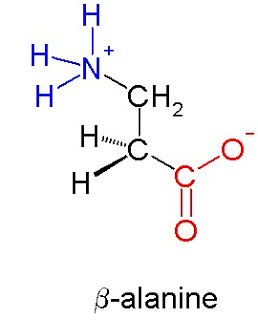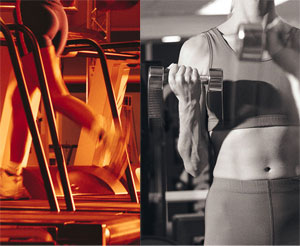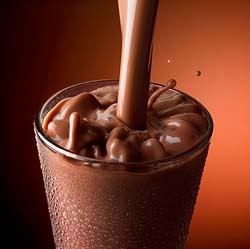Beta-alanine: The meta-analysis – 18 trials, still a marginal effect
 I’ve always thought a meta-analysis on beta-alanine was a good idea. So many of the trials have been underpowered, that it felt like weren’t getting anywhere fast. I wanted to be the one to do it, but life circumstances have kept me from focusing on much other than my main career. So it was a pleasant surprise to see that someone else had the same idea.
I’ve always thought a meta-analysis on beta-alanine was a good idea. So many of the trials have been underpowered, that it felt like weren’t getting anywhere fast. I wanted to be the one to do it, but life circumstances have kept me from focusing on much other than my main career. So it was a pleasant surprise to see that someone else had the same idea.
With just 11 weeks left before my exams though, I’m going to keep this blog entry brief. Read More...
What price would you pay for muscles?

Not everyone works out for performance. I would count myself amongst the folks who work out basically for looks. There was a time when I lifted to get better at my sport, but the reality is that my career and most of my current hobbies don’t require me to perform at a much higher skill level than sewing two hollow tubes about 1mm in diameter together, which clearly doesn’t require heavy squats to improve.
This entry’s article came to my attention from Ryan Zielonka, who wrote, Read More...
Aerobic exercise vs weights. Who will win?

There is no question that diet and exercise both play a role in fat/weight loss. Schools of thought range from the “it matters more what you eat” camp to the “it matters more how much you move with subgroups ranging from the “it matters how many calories you eat” camp to the “it matters if you do weights” camp and then the all-popular, “just move more” vs. “move, but move really really fast in short intervals of time” camps.
Jen Sinkler of Experience Life magazine brought this study to my attention, because I belong to the, “it matters if you do weights and probably doesn’t matter much if you move more, whether at a steady pace or really really fast in burst intervals.” camp ((mostly out of laziness and abhorrence of “cardio”) Read More...
Beta-alanine redux: Same question, still no answer. But they still recommend you take it.
 It’s been three years since I’ve written about beta-alanine. I do monitor the literature from time to time to see what’s new in the BA research world. But really, there isn’t anything new. There still is no definitive answer that BA does anything meaningful. The latest BA study not only failed to find anything meaningful, but also failed to plan to find anything meaningful, allowing the gods of statistical probability to decide if the fruits of their labour would be met with reward.
It’s been three years since I’ve written about beta-alanine. I do monitor the literature from time to time to see what’s new in the BA research world. But really, there isn’t anything new. There still is no definitive answer that BA does anything meaningful. The latest BA study not only failed to find anything meaningful, but also failed to plan to find anything meaningful, allowing the gods of statistical probability to decide if the fruits of their labour would be met with reward.
Kern BD, Robinson TL. Effects of beta-alanine supplementation on performance and body composition in collegiate wrestlers and football players. Journal of Strength and Conditioning Research, 25(7):1804-1815, 2011. Read More...
It was bound to happen
 This blog entry is courtesy of Fran Mayo who read an article in “Runner’s World” about some of the benefits of drinking pomegranate juice. It was fairly inevitable that I would get around to talking about pomegranate juice. It is, after all, all the rage right now and POM is currently in the media regarding some dubious health claims.
This blog entry is courtesy of Fran Mayo who read an article in “Runner’s World” about some of the benefits of drinking pomegranate juice. It was fairly inevitable that I would get around to talking about pomegranate juice. It is, after all, all the rage right now and POM is currently in the media regarding some dubious health claims.
There are lots of reasons to drink pomegranate juice. Personally, when it first came out as a commercial product, I thought it was a pure novelty. I mean, have you ever EATEN a pomegranate? It takes FOREVER. The whole idea of juicing enough fruit to make a whole bottle of pure pomegranate juice was just unfathomable. So from my perspective, one of the reasons to drink pomegranate juice is because you can. All that pomegranate-y taste without the painstaking work. Read More...
Actually, yes, you can.
 The amount of time one rests between sets is an often missed, or often underestimated training variable. It’s also one of the least studied variables when it comes to looking at hypertrophy as the outcome (as opposed to strength, or other performance variables, or even biochemical markers). So it is a treat to see a study where hypertrophy is the variable of interest, and where measurement of hypertrophy is truly a direct measurement. While not every investigator can measure hypertrophy in this way, it does go to show that “It can’t be done,” or “It will never get done,” are just words, because these researchers, in the words of the famous Dos Remedios, “did work.”
The amount of time one rests between sets is an often missed, or often underestimated training variable. It’s also one of the least studied variables when it comes to looking at hypertrophy as the outcome (as opposed to strength, or other performance variables, or even biochemical markers). So it is a treat to see a study where hypertrophy is the variable of interest, and where measurement of hypertrophy is truly a direct measurement. While not every investigator can measure hypertrophy in this way, it does go to show that “It can’t be done,” or “It will never get done,” are just words, because these researchers, in the words of the famous Dos Remedios, “did work.”
de Souza TP, Fleck SJ, Simao R, et al. Comparison between constant and decreasing rest intervals: Influence on maximal strength and hypertrophy. Journal of Strength and Conditioning Research 24(7) 1843-1850, 2010. Read More...
Chocolate milk: Yummy, but not special.
 The ‘original’ chocolate milk study came out in 2006. And it seems like the whole chocolate milk thing just won’t die. Alas, document delivery has yet to deliver the article to my inbox yet (have I mentioned how much I love the Internet?), so I leapt forward in time to look at another study in the small puddle of chocolate milk studies.
The ‘original’ chocolate milk study came out in 2006. And it seems like the whole chocolate milk thing just won’t die. Alas, document delivery has yet to deliver the article to my inbox yet (have I mentioned how much I love the Internet?), so I leapt forward in time to look at another study in the small puddle of chocolate milk studies.
This study doesn’t quite get at the question, “How important, exactly, is post-workout nutrition?” but rather, “How does chocolate milk compare to other forms of post-workout nutrition?” Read More...
Feel the PUMP! Um..that’s it.
First off, I LOVE how this article starts, “The use of nutritional supplements continues to increase with athletes and recreationally active trainees…” That’s right, you gym rats (me included); we’re not athletes. Quit pretending. It’s okay.
Snarkiness aside, I’ve been wanting to discuss nitric oxide or NO supplements (as well as pre-workout drinks) for a long time; but oddly enough, the literature was incredibly sparse on the topic in terms of studies involving humans and outcomes training individuals would be interested in. NO-type ingredients seem to be in everything, to the point where you don’t have to _decide_ to take an NO-related ingredient, you probably just are, particularly if you’re taking anything that is designed as a pre-workout supplement. In fact, it’s amazing that they can stuff more than 30 ingredients into a single pre-workout drink such that it will still fit into a couple of scoops. Read More...
How much would you pay for 2 more reps at the end of your workout?
 The concept of progressive overload is a cornerstone to any weight-training program. Lifting more weight, or lifting the same weight for more reps is the goal that is theorized to produce muscle growth, or better performance (however you decide to measure that).
The concept of progressive overload is a cornerstone to any weight-training program. Lifting more weight, or lifting the same weight for more reps is the goal that is theorized to produce muscle growth, or better performance (however you decide to measure that).
Citrulline malate has been an ingredient in a multitude of sport supplements. It is theorized to work through 3 proposed mechanisms: 1) malate is proposed to accelerate ammonium clearance and citrulline is proposed to facilitate lactate metabolism (these effects however, were noted in microbial models, i.e. germs in a dish); 2) citrulline malate has been noted to protect against acidosis which is proposed to counter fatigue; 3) Citrulline malate is proposed to increase nitric oxide production, which has been shown to have many potentially physiologically beneficial effects (though none of these effects may affect the stuff you’re concerned about like muscle growth, fat loss, or any performance benefit). Read More...
An iPod Shuffle! For almost free! (Oh, and protein timing)
Eating protein before and after workouts has been touted to be one of the most important things you can do to decrease DOMS, increase protein synthesis, prevent protein breakdown, and in this article, increase your resting metabolic rate. The other claims…maybe I’ll tackle those another day (This post is hellishly long enough) Read More...